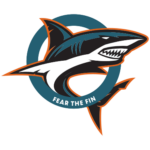With almost $7MM left in cap space, Sharks fans have been wondering about next steps for the team. When it comes to Doug Wilson making additional changes to the roster, the question isn’t “will he” as much as it is “when will he.”
Wilson already made two significant moves in acquiring Brent Burns and Martin Havlat, shipping out roster players Devin Setoguchi and Dany Heatley in return. The moves have done little to quench the thirst of fans; the offseason is a time where a new trade idea is exhaled with each passing breath.
Roster talk this offseason seems justified, however, with open spots on the squad and cap dollars to spend. Even San Jose Sharks beat writer David Pollak, usually one to shy away from trade speculation, stoked the fire in his latest column.
Are the Sharks finished revamping the lineup before training camp? How’s this for an informed and ambiguous answer: Not necessarily.
An informed answer from Pollak is worth its weight in gold; the man knows the organization and its nuances better than anyone else on the outside looking in. However, with the unrestricted free agent pool dry, the easy options are few and far-between. Where will Doug Wilson make his next move?
Because of the lack of talent out there, attention turns to players under the control of their respective teams. The possibility of an offer sheet is tossed around and trade ideas are brought to the fold, but these avenues are tougher to navigate than the free agent market, and even harder to predict.
Once arbitration hits, however, the murky waters clear slightly. When a restricted free agent and their respective team cannot agree on terms for a new contract, arbitration is a means for reaching that agreement. Once the independent arbitrator takes the player’s history and market value into consideration, they provide the team with a contract they feel is fair. The team is then forced to accept that deal. If they don’t, they lose their rights to the player, who is then put into the unrestricted free agent pool.
That situation should sound familiar to Sharks fans; franchise goalie Antti Niemi found himself without a home after the Blackhawks decided not to accept the contract awarded to him by an arbitrator. Wilson then did what he does best, he took advantage of the situation and improved his team without giving up anything in return.
Although another player is unlikely to fall into Wilson’s net the way that Niemi did last summer, the arbitration period will be one of interest in San Jose. Teams like Buffalo, Washington, New Jersey and the New York Rangers are awaiting arbitration rulings that will significantly affect their teams.
The opportunity here won’t always be the player who is filing for arbitration; teams forced into a corner by the arbitration ruling may have to trade current assets to stay under the cap. Washington already had to make a sacrifice in trading Eric Fehr to Winnipeg, primarily because Karl Alzner is taking the Capitals to arbitration and is expected to earn as much as $3MM annually. Trading Fehr only ended up netting them about $350,000 in cap room, so other decisions will have to be made. SImilar situations like this will arise going forward.
Plank and I will spend the next few weeks evaluating each of these situations, especially as the hearings come and go.
This summer has been an exciting one, but it might not be over yet.

 As many of you know, Fear the Fin is an independent site run by Sharks fans for Sharks fans. Help keep Fear the Fin independent by contributing to our
As many of you know, Fear the Fin is an independent site run by Sharks fans for Sharks fans. Help keep Fear the Fin independent by contributing to our